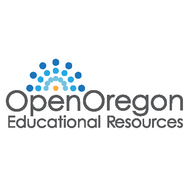
(View Complete Item Description)
Materials created by Larry Shrewsbury when he piloted the open source textbook “OpenIntro Statistics” during Fall 2016 through Spring 2017. These are MS Word documents so you can edit them to suit you.
MTH 243: Emphasizes the basic concepts and techniques of probability, descriptive, and inferential statistics. Topics include describing the distribution of data graphically and numerically, standard scores, normal distribution, empirical rule, sampling distributions, confidence intervals, hypothesis testing of both one and two populations, and linear regression. Introduces appropriate technology to display and analyze data.
MTH 244: Presents an assortment of tools from inferential statistics with an emphasis on applications. Reviews the concepts of hypothesis testing and confidence intervals. Introduces probability distributions of test statistics for various inferential statistical problems. Includes Analysis of Categorical Data (Chi-Square Goodness of Fit Test), Analysis of Variance (ANOVA), Nonparametric Statistics, and a brief introduction to Multiple Linear Regression. Applies the concepts and procedures with appropriate software tools for data analysis.
Material Type:
Activity/Lab,
Homework/Assignment,
Lecture Notes
Author:
Larry Shrewsbury




















